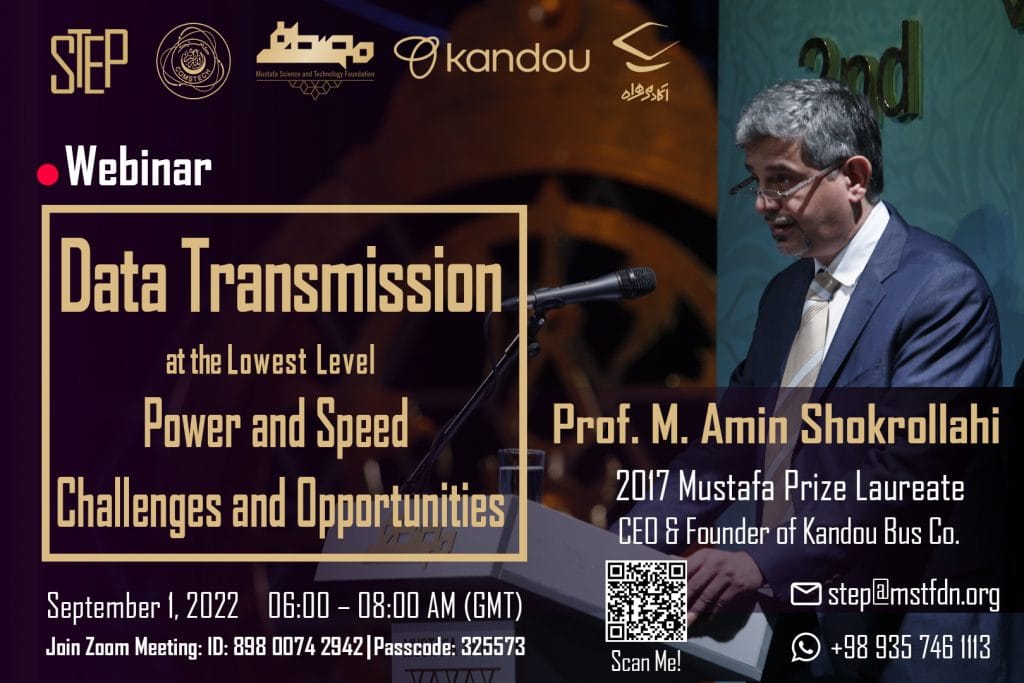COMSTECH-MSTF Webinar on Data Transmission at the Lowest Level: Power and Speed,Challenges and Opportunities
Prof. M. Amin Shokrollahi
2017 Mustafa (PBUH) Prize Laureate
CEO and Founder of Kandou Bus Co.
Date: September 1, 2022
Time: 06:00-8:00 GMT (11:00-13:30 Pakistan Standard Time)

Abstract:
Communication of data on electrical wires between chips is fast gaining prominence in the electronics industry. Because most of the components of the transmitter and the receiver of such links are analog, rather than digital, they don’t benefit as much from Moore’s law. On the other hand, the need to transmit data ever faster calls for higher rates of transmission over existing electrical wires. Since in this type of communication noise is highly frequency dependent, higher transmission rates lead to much higher noise, and therefore a much higher growth of power consumption than linear. The industry has long recognised this problem as the “Interconnect bottleneck”. However, fundamental solutions to this important problem have remained elusive.
A look at the capacity of these channels reveals that today we are only transmitting at anywhere between 1% to 4% of the capacity. Therefore, at least on the surface, there is a lot to be gained by applying methods from communication theory to this problem. However, unlike many other systems such as wireless, DSL, satellite, or optical communication, the constraints on the chip-to-chip communication system are very different: transmission rates are typically 1000 times those encountered in wireless communication. On the other hand, the energy consumed for the transmission and recovery of each bit is about 1000 times less than what is customary in wireless. Also, latency requirements are extremely stringent, allowing only latencies up to very few nanoseconds. Therefore, it is not possible to use fancy processing methods.
In this talk, Prof. Shokrollahi will introduce a new modulation scheme for chip-to-chip communication which is called chordal codes. These codes are somewhat reminiscent of spatial MIMO systems, and provide a first step towards a better utilisation of the available communication bandwidth between chips. Current implementations of systems based on these codes show a large reduction of total power of the communication PHY and a large increase of the communication speed compared to other classical system.
Target Audience:
The webinar is open to students, researchers, young scientists, and academicians from the OIC member states, and other countries.
For Registration please visit: https://forms.gle/wGfopgBBBfJmYNE49
Procedure to Join: Zoom link will be shared with selected participants via email.
Profile of Speaker: https://mustafaprize.org/page/?id=21
Webinar Coordinator:
Muhammad Haris Akram
Program Manager
COMSTECH, Islamabad.
Email: haris@comstech.org
Phone: +92 51 9220681
Muhammad Haseeb Ahmad
Program Officer
COMSTECH, Islamabad.
Email: Haseeb.ahmad@comstech.org
Phone: +92 51 9220681
